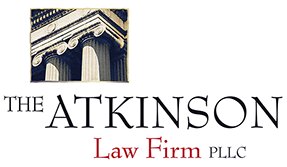Best Citizenship Lawyers in North Carolina
Share your needs with us, get contacted by law firms.
Free. Takes 2 min.
Or refine your search by selecting a city:
List of the best lawyers in North Carolina, United States
About Citizenship Law in North Carolina, United States
Citizenship in the United States is primarily governed by federal laws and regulations. In North Carolina, as in all states, individuals may seek to obtain, confirm, or protect their U.S. citizenship status through naturalization, birthright citizenship, or citizenship by descent. North Carolina follows federal guidelines for citizenship applications, but residents often interact with state agencies for documentation and support. Issues related to proof of citizenship, dual citizenship, and the rights and responsibilities of U.S. citizens are critical factors for state residents.
Why You May Need a Lawyer
Navigating citizenship matters can be complex, and legal assistance is often essential. People may seek a citizenship lawyer for the following reasons:
- Applying for naturalization and preparing for the citizenship interview
- Resolving legal complications regarding citizenship eligibility
- Assistance with denied or delayed citizenship applications
- Rectifying errors on vital documents or certificates
- Understanding the impacts of criminal convictions or immigration violations
- Appealing unfavorable decisions or deportation threats
- Clarifying dual citizenship regulations and obligations
- Obtaining proof of citizenship for state benefits or employment
- Representing minors or people with disabilities in citizenship issues
Seeking a lawyer experienced in citizenship law can help safeguard your rights and streamline what might otherwise be a stressful and complicated process.
Local Laws Overview
Although U.S. citizenship laws are largely federal, North Carolina has specific practices and resources that impact residents:
- The North Carolina Department of Motor Vehicles and other state agencies may request proof of citizenship for services such as obtaining a driver’s license or voting registration
- Public benefits often require proof of citizenship or lawful presence in the state
- The North Carolina Election Board enforces rules regarding citizenship verification for voting
- Local courts and agencies may assist with name changes or correcting birth certificates, which are often steps in the citizenship process
- Legal aid organizations in North Carolina provide specialized services for immigrants and prospective citizens
Having an understanding of both federal and state-specific requirements is important for a smooth citizenship journey in North Carolina.
Frequently Asked Questions
What are the main ways to become a U.S. citizen in North Carolina?
Most people become U.S. citizens by being born in the United States, through naturalization, or by acquiring citizenship through their parents.
Can undocumented immigrants apply for citizenship in North Carolina?
Undocumented immigrants generally cannot apply for citizenship directly. Eligibility for a green card is usually a prerequisite before applying for naturalization.
What is the process for naturalization?
Naturalization typically involves maintaining lawful permanent residency for a certain number of years, passing English and civics tests, filing Form N-400, attending a biometrics appointment, and completing an interview.
How long does the citizenship process take in North Carolina?
Processing times vary but can range from several months to over a year, depending on volume and individual circumstances.
If my naturalization application has been denied, can I appeal?
Yes. You may request a hearing with a USCIS officer or, in some cases, appeal further in federal court. Legal assistance is highly recommended for appeals.
Do I have to give up my original citizenship from another country?
The U.S. does not require individuals to renounce their original citizenship, but some other countries may not permit dual citizenship. It is important to check the laws of your country of origin.
Do children automatically become citizens when their parents naturalize?
In certain circumstances, children under 18 who are lawful permanent residents may automatically acquire citizenship when their parents naturalize. Legal advice can help clarify eligibility.
Is proof of citizenship required for obtaining a North Carolina driver’s license?
Proof of citizenship or lawful presence is typically needed to obtain a driver’s license or state identification card in North Carolina.
Can I lose my U.S. citizenship?
U.S. citizenship is generally permanent, but it can be lost through voluntary renunciation or serious fraud in the application process. Legal advice is crucial if you face these circumstances.
Where do I file my citizenship application if I live in North Carolina?
Citizenship applications for North Carolina residents are processed by U.S. Citizenship and Immigration Services. Certain filings can also be submitted online.
Additional Resources
If you need more information or help on citizenship matters in North Carolina, consider the following resources:
- U.S. Citizenship and Immigration Services (USCIS) - The main federal agency handling applications and information for citizenship
- North Carolina Justice Center - Provides immigration legal services and resources for state residents
- Legal Aid of North Carolina - Offers free or low cost legal help for eligible individuals
- North Carolina Vital Records Office - Assists with state birth certificates and legal identity documents
- Local bar associations - Can refer you to qualified citizenship attorneys in your area
- Community-based immigration advocacy organizations - Offer assistance and information on citizenship, naturalization, and immigrant rights
Next Steps
If you think you need legal help regarding citizenship in North Carolina:
- Gather all relevant documentation, such as your green card, passport, birth certificate, and any records of previous applications
- Make a list of specific concerns or questions you want to discuss with a lawyer
- Contact an experienced citizenship or immigration attorney for an initial consultation
- Reach out to legal aid organizations if you have limited financial resources
- Begin the application process only when you feel fully informed about your eligibility and the necessary steps
Taking these steps can help ensure your citizenship journey in North Carolina is as smooth and successful as possible.
Lawzana helps you find the best lawyers and law firms in North Carolina through a curated and pre-screened list of qualified legal professionals. Our platform offers rankings and detailed profiles of attorneys and law firms, allowing you to compare based on practice areas, including Citizenship, experience, and client feedback.
Each profile includes a description of the firm's areas of practice, client reviews, team members and partners, year of establishment, spoken languages, office locations, contact information, social media presence, and any published articles or resources. Most firms on our platform speak English and are experienced in both local and international legal matters.
Get a quote from top-rated law firms in North Carolina, United States — quickly, securely, and without unnecessary hassle.
Disclaimer:
The information provided on this page is for general informational purposes only and does not constitute legal advice. While we strive to ensure the accuracy and relevance of the content, legal information may change over time, and interpretations of the law can vary. You should always consult with a qualified legal professional for advice specific to your situation.
We disclaim all liability for actions taken or not taken based on the content of this page. If you believe any information is incorrect or outdated, please contact us, and we will review and update it where appropriate.
Browse citizenship law firms by city in North Carolina
Refine your search by selecting a city.









